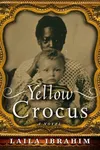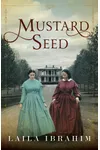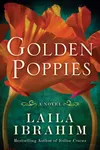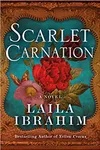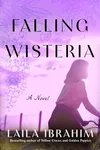Step into the heartfelt world of the Freedman/Johnson series, where love and resilience bloom against the backdrop of 19th-century America! Laila Ibrahim’s historical fiction saga weaves a captivating tale of two families—one Black, one white—bound by an extraordinary bond that defies the era’s racial and social divides. With vivid characters and emotionally charged storytelling, this series is a must-read for fans of stories that celebrate the human spirit.
From its humble beginnings as a self-published novel to a beloved trilogy, the Freedman/Johnson series invites readers to explore themes of freedom, family, and the courage to challenge injustice. Ready to dive into a narrative that’s as thought-provoking as it is moving? Let’s explore this gem of historical fiction!
How Freedman/Johnson Began
Laila Ibrahim launched the Freedman/Johnson series with Yellow Crocus in 2011, a novel she self-published after agents doubted its marketability. Drawing on her background in developmental psychology and attachment theory, Ibrahim crafted a story inspired by the complex relationships between enslaved women and the children they cared for. Her experiences as a preschool director and birth doula infused the narrative with authentic emotional depth, making the series a standout in historical fiction.
Ibrahim’s passion for multiculturalism and her Unitarian Universalist values shine through, grounding the series in a commitment to exploring love across differences. What started as a single novel grew into a trilogy, with readers clamoring for more of the Freedman and Johnson families’ journey through a transformative era in American history.
The Heart of Freedman/Johnson
The Freedman/Johnson series spans three novels: Yellow Crocus, Mustard Seed, and Golden Poppies. Yellow Crocus introduces Mattie, an enslaved wet nurse, and Lisbeth, the white child she raises on a Virginia plantation. Their unlikely bond challenges the brutal realities of slavery, setting the stage for a multi-generational saga. Mustard Seed follows the families to Ohio post-Civil War, grappling with lingering racism and the fight for true freedom. Golden Poppies shifts to the 1890s, exploring women’s suffrage, anti-lynching campaigns, and the complexities of racial identity.
Ibrahim’s storytelling blends rich historical detail with themes of love, courage, and resilience. The series tackles heavy topics—slavery, racial injustice, and gender inequality—with a gentle yet unflinching touch, making it accessible and impactful. Set across Virginia, Ohio, and California, the novels paint a vivid picture of America’s evolving social landscape, with characters whose personal triumphs and struggles resonate deeply.
The series’ strength lies in its dual perspectives, offering insights into both Black and white experiences. Readers praise Ibrahim’s ability to craft relatable, flawed characters who grow through adversity, making each book a compelling blend of heart and history.
Why Freedman/Johnson Resonates
The Freedman/Johnson series has carved a niche in historical fiction, earning praise for its nuanced portrayal of race and relationships. Fans on Goodreads and book blogs like Roving Bookworm laud its emotional depth and educational value, with many calling it a “captivating” and “eye-opening” read. Its exploration of attachment and identity speaks to modern audiences, reflecting ongoing conversations about equality and justice.
Ibrahim’s work stands out for proving that stories about marginalized voices have universal appeal. By centering strong women like Mattie and Jordan, the series inspires readers to reflect on resilience and the power of human connection, ensuring its place as a timeless contribution to the genre.
- Publication Years: 2011 (Yellow Crocus), 2017 (Mustard Seed), 2020 (Golden Poppies)
- Number of Books: 3
- Setting: 19th-century America (Virginia, Ohio, California)
- Genre: Historical Fiction
Grab Yellow Crocus and dive into the Freedman/Johnson series’ world of heartwarming bonds and historical insight! Whether you’re a history buff or a fan of character-driven stories, this trilogy is a journey worth taking.
